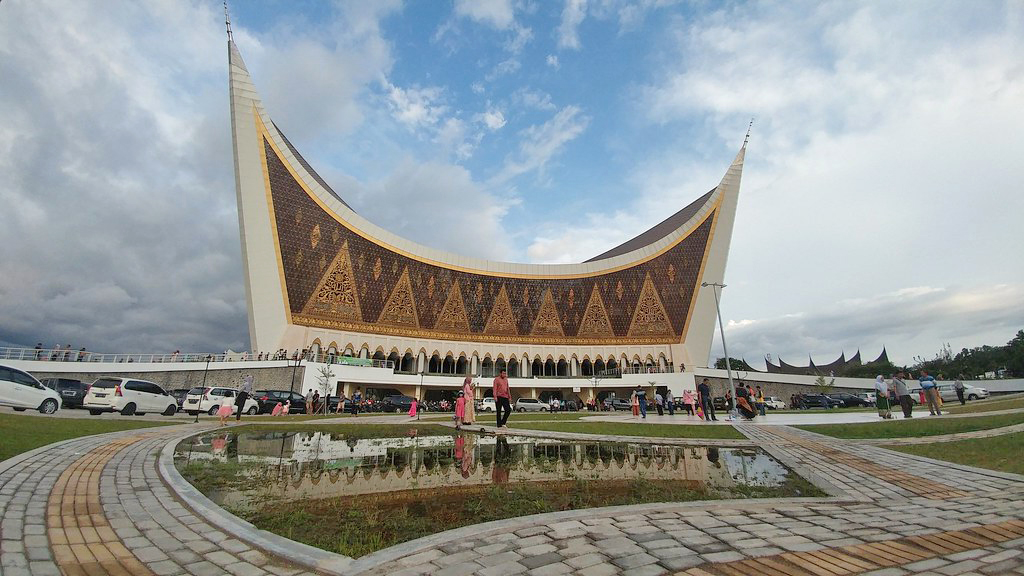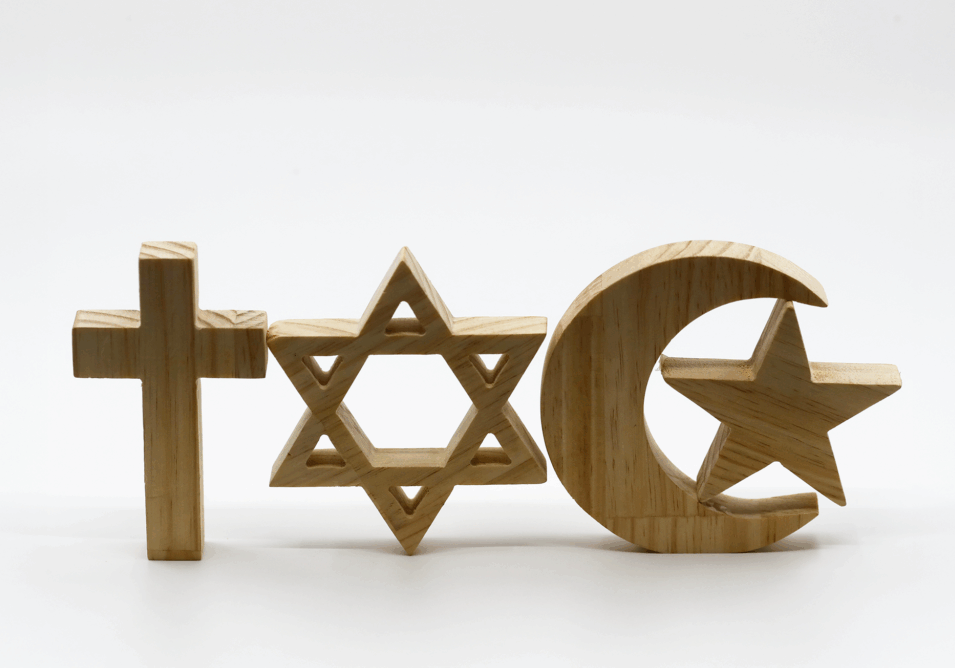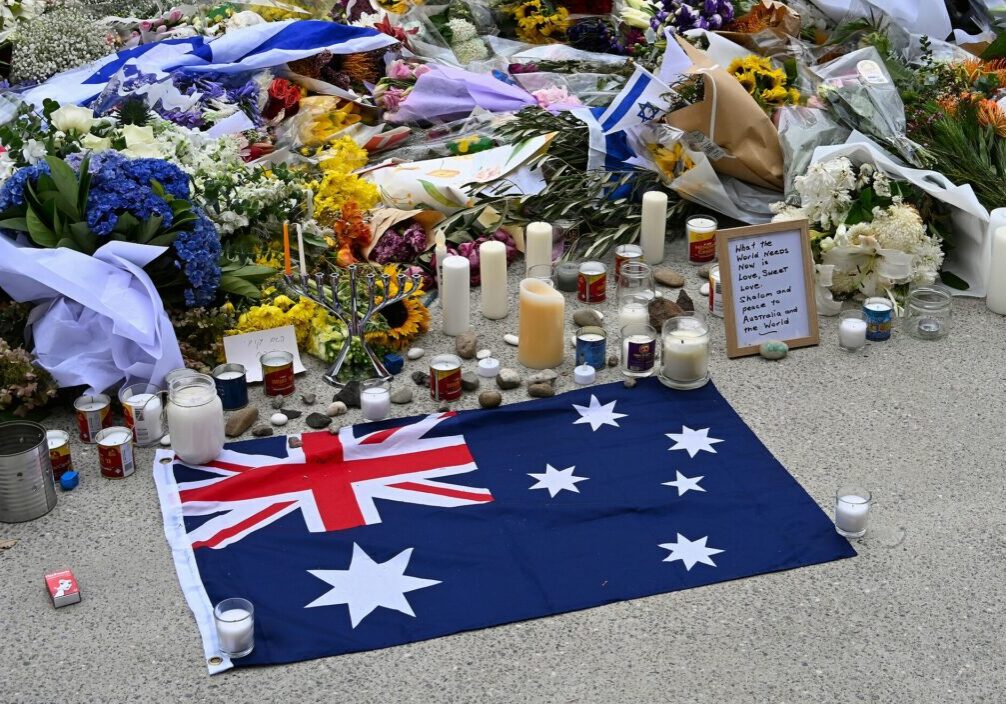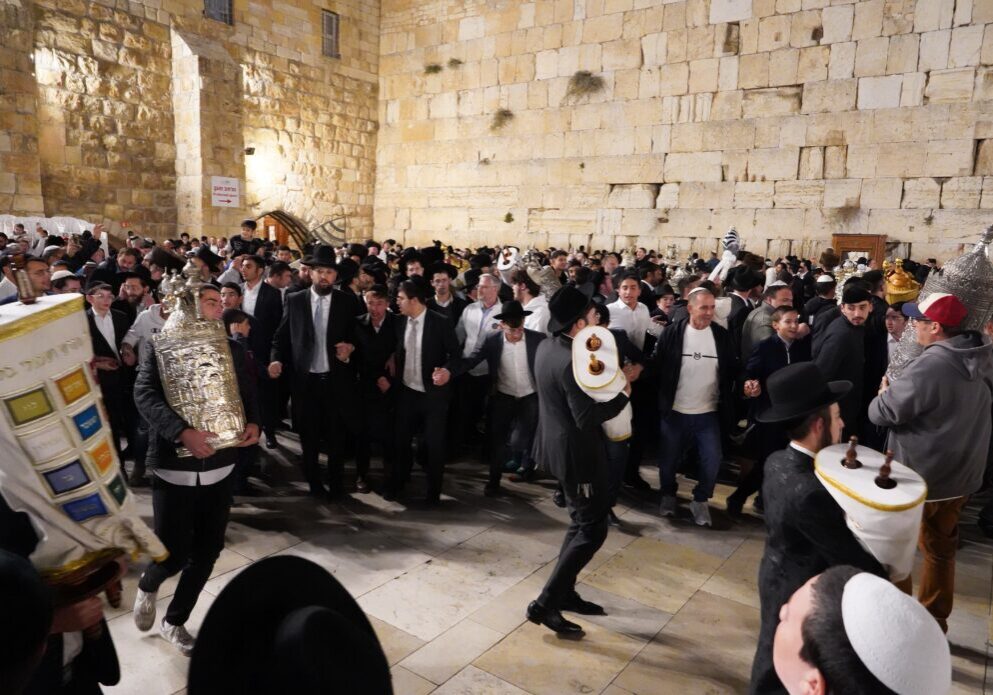Australia/Israel Review
The Last Word: Among the believers
Nov 29, 2019 | Jeremy Jones

The Grand Mosque in Padang, Indonesia, is a stunning building. Using unique features of classic Sumatran bull’s horn architecture, it simultaneously dominates and blends in with the landscape. The interior design maximises the use of natural light in a way which seems to embrace people at prayer wherever they are situated within this huge prayer hall.
I was invited and encouraged by my hosts to say the Mincha (Jewish afternoon) prayer in this inspiring space.
When I emerged, I was presented with a photo taken through a hexagonal star and learnt how the use of this traditional geometric design had been the subject of some complaints and dispute when the mosque was opened. In the end, the architect agreed that Jewish influence would have been a bad thing but that the stars had nothing to do with “Jewish Kabbalah”.
Padang is known as one of the centres for Arab Islam in an archipelago in which quite a different version of Islam attracts the support of 70% of Muslims It was the last stop on my speaking tour of universities, pesantrens, madrassas and meeting halls across Java and Sumatra.
From Surabaya to Cirebon, in Rembang and Jakarta, I was the first Jewish person ever encountered by nearly everyone whom I met.
The topics I addressed included “Religious Dialogue in the Age of Resentment and Rising Populism”, “The Dynamics of Religion and Politics in the Contemporary Middle East” and an entire sub-genre on encounters between Islam and Judaism.
In many of the sessions, I participated in panels of scholars, each of whom demonstrated considerable expertise in the selected subject.
It was fascinating to hear how the historical debates regarding Jerusalem were presented by a Muslim to a Muslim audience, and refreshing to hear clear and balanced presentations on an emotive topic.
It was somewhat disconcerting at times to hear about actual or fantasised characteristics of Jews while sitting and waiting for my opportunity to speak, yet there was no session in which there was any serious doubt that a spirit of enquiry and desire for mutual understanding overrode any attempt to denigrate Jews or skew the agenda towards hostility.
At a majority of events the proceedings began with presentations from the Quran – and a majority of these were delivered by impressive young women. While the choice of text in some instances could be interpreted as a signal to those listening to be critical in their approach to my presentations, all the discussions which focused on Jewish responses to Islamic understandings of Jews were intense, intellectual and generally constructive.
In the meetings and discussions on the subject of problematic interpretations and uses of religion, we found common ground in the positive example of former Indonesian President Abdurrahman Wahid, known affectionately as Gus Dur.
In addition to being a good personal friend of former Israeli President Shimon Peres (obm), Rabbi David Rosen and other giants in the Jewish world, President Wahid had encouraged Indonesian Muslims to live out their beliefs through contributions to their own and broader society.
An online translation of one of the media reports of a presentation I delivered had me describing Indonesians as ‘very polite’.
While my experience in this and previous engagements confirms this is true, it is not what I said in discussions relating to the problem of religious extremism and its weaponisation against interfaith co-operation.
My aim in these discussions was to reinforce the instincts of my interlocutors that the specific form of Islam which dominates the Indonesian landscape is something which they should proudly and unapologetically take to the world.
It was a running joke with my hosts that I was on a failed mission to see a Sumatran tiger (the closest I came was a stuffed beast in the Museum and a rather aggressive tabby at the mosque.)
What I did encounter, amongst educators, activists, and political office bearers, was a tigerishly fierce enthusiasm to discover new ways of seeing the world and appreciation for the opportunity to meaningfully engage with me.
Tags: Indonesia, Interfaith Dialogue, Islam, Judaism






